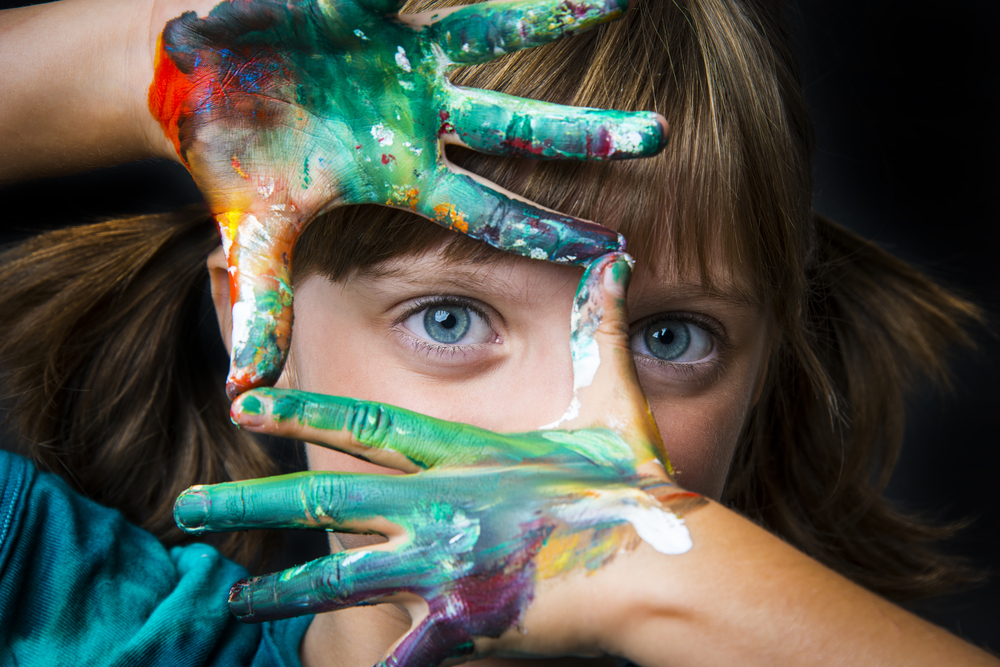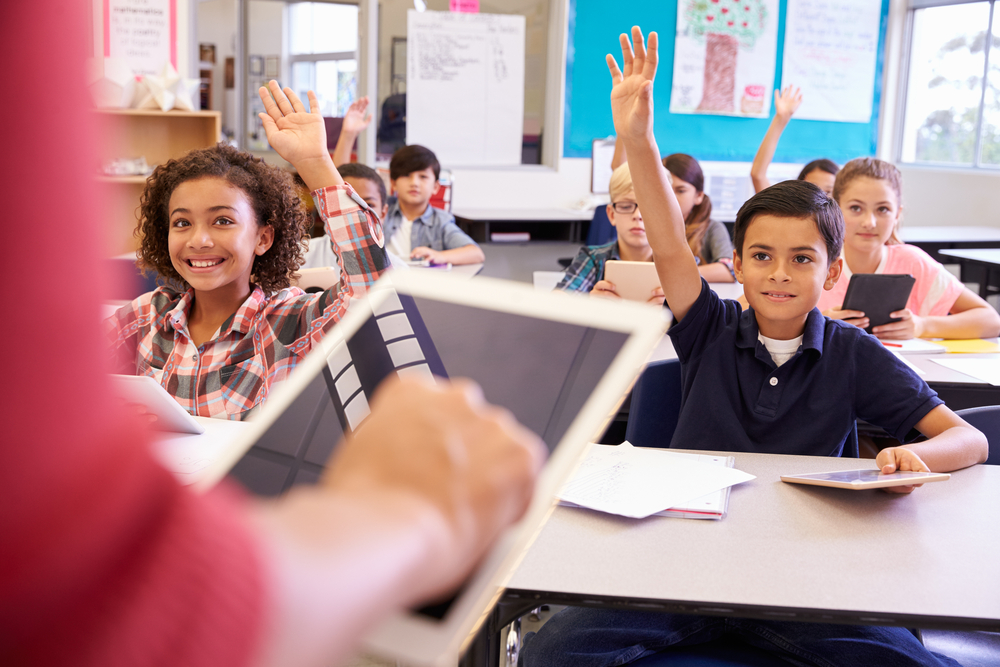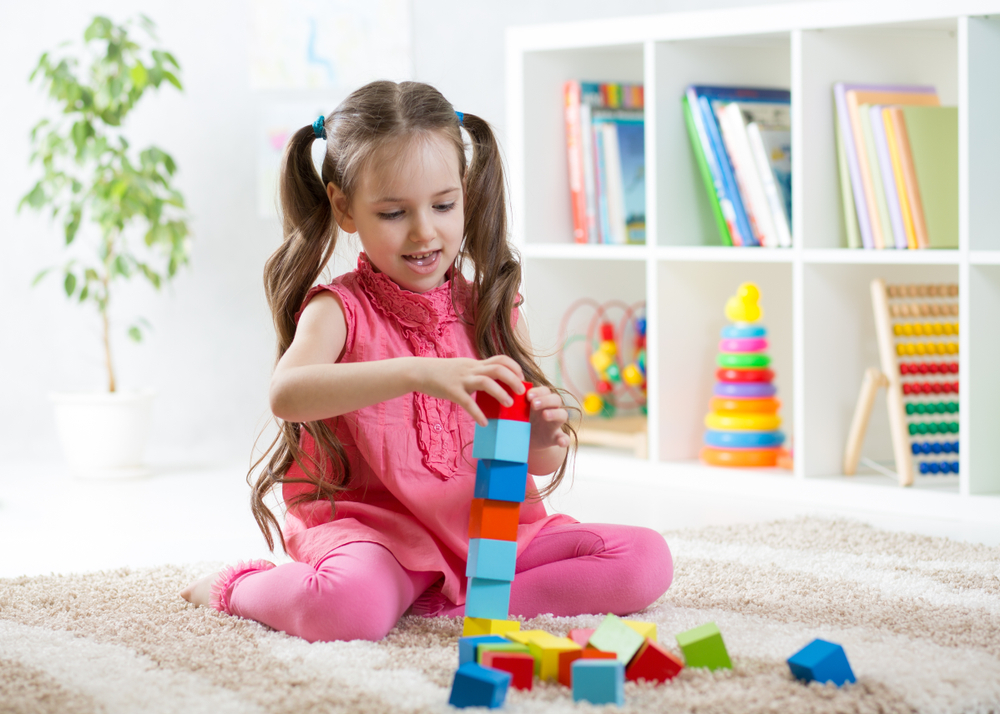Physical Science worksheets activities for Ages 4-7
6 filtered results
-
From - To
Discover engaging Physical Science worksheets and activities designed specifically for children ages 4-7 at Kids Academy. Our interactive resources introduce budding scientists to fundamental concepts like matter, energy, and the properties of everyday objects, all while making learning fun and accessible. Each worksheet is crafted to enhance critical thinking skills through hands-on practice and playful exploration. Whether your child is measuring temperature, observing natural phenomena, or experimenting with basic materials, our activities promote curiosity and encourage an early love of science. Explore our collection today and inspire your little learners to embark on exciting science adventures at home or in the classroom!


Light and Sound: Assessment 2 Worksheet
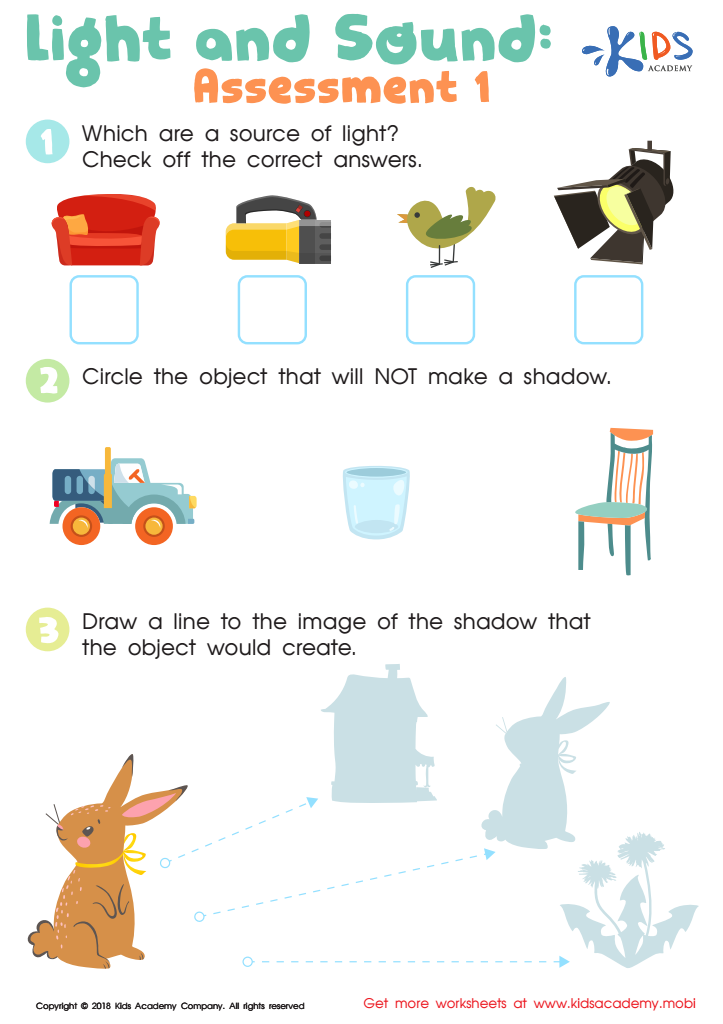

Light and Sound: Assessment 1 Worksheet
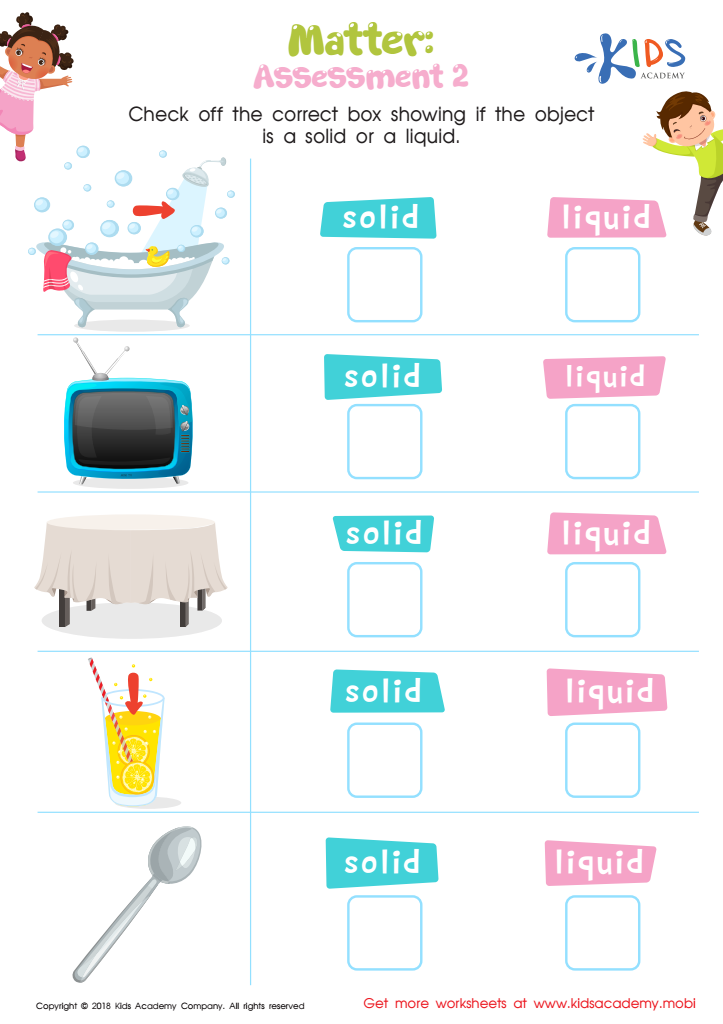

Matter: Assessment 2 Worksheet


Matter: Assessment 1 Worksheet
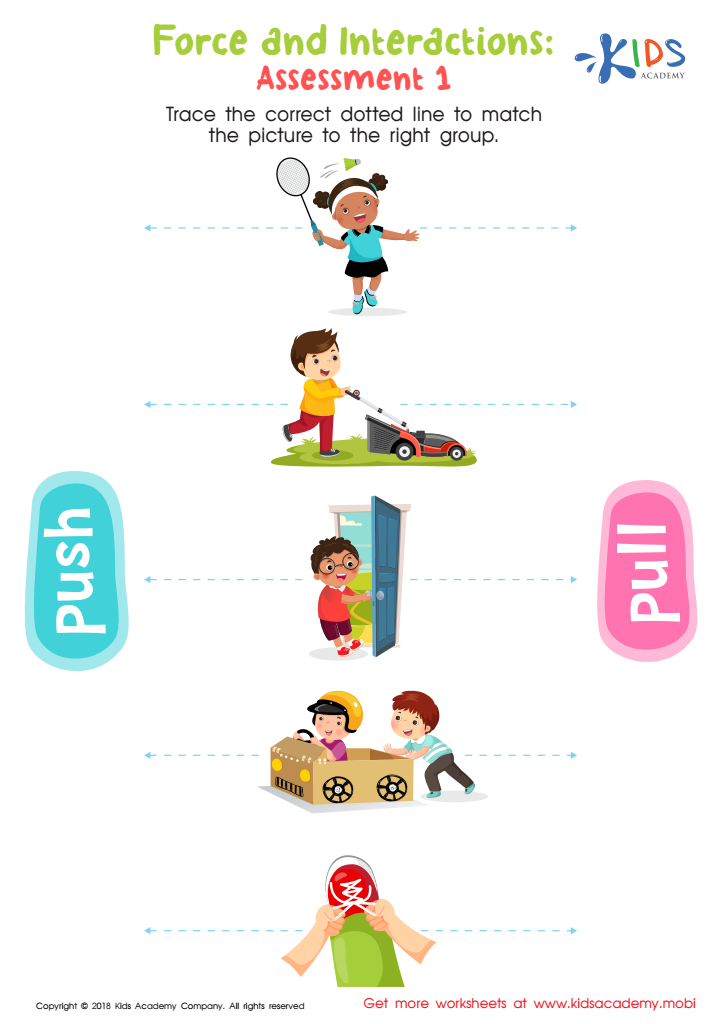

Force and Interactions: Assessment 2 Worksheet


Force and Interactions: Assessment 1 Worksheet
Physical Science activities for children aged 4-7 are essential for several reasons. First, they foster a foundational understanding of the natural world, encouraging curiosity and exploration. At this age, children are naturally inquisitive about how things work, and engaging them in hands-on science activities allows them to ask questions, hypothesize, and seek answers, reinforcing critical thinking skills.
Additionally, these activities promote fine and gross motor skills as young learners manipulate materials, conduct experiments, and explore concepts like weight, gravity, and motion. This tactile engagement is crucial for cognitive development and helps incorporate a sensory experience, making learning memorable.
Moreover, Physical Science activities enhance social skills through collaborative projects where children learn to communicate, share ideas, and solve problems together. This teamwork fosters positive interactions with peers and adults, which is vital for developing emotional intelligence.
Lastly, by integrating science early in education, parents and teachers encourage a lifelong love for learning and pave the way for future academic success. Instilling a solid foundation in physical science stimulates children's creativity and innovation, essential skills in our rapidly evolving world. Overall, prioritizing these activities nurtures well-rounded, inquisitive, and capable young learners.
 Assign to My Students
Assign to My Students




